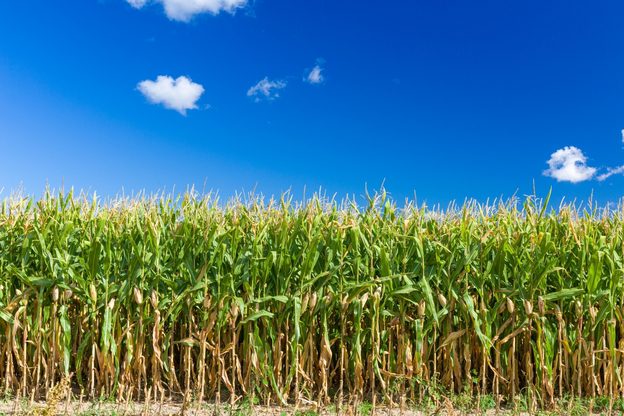
Topsoil loss proceeds apace
According to a new study, about 35% of the best topsoil in the U.S. Corn Belt is gone.
The mechanization of plowing began in the mid-1900s. While this allowed farmers to work larger areas of land, it has resulted in some negative effects on soil health. Tillage breaks up the soil and unlocks nutrients, but over time, the process compacts the soil and damages the microbial life important for capturing carbon and storing nutrients.
Thus, farmlands with losses of topsoil require inputs of industrial fertilizers, which come at a cost to both farmers and the environment. Farmers may spend hundreds of thousands of dollars a year on fertilizers. But due to erosion, much of this fertilizer simply washes away into watersheds and, in the case of the corn belt, into the Mississippi River.
“A third of the Midwest is currently losing 50% of its fertilizer,” Bruno Basso, a professor at Michigan State University, who was not involved in the study, told Mongabay. “Which means the plants are stunted and smaller. And it doesn’t matter how much fertilizer you put on these areas, they will not take the nitrogen up. So, it’s a vicious cycle.”
(Mongabay)
Ah, fertilizer runoff. Southwest Minnesota in particular gets to live with the effects of that.
Here is an exceptionally well sourced essay on how the sorts of farming practices favored by Big Ag affect soil health.
And the following is from ten years ago, but things haven’t changed. As long as Big Ag is making big bucks, and can use a lot of those to keep politicians in their pockets, they don’t give a shit. More precisely, they engage in extremes of motivated reasoning, to convince themselves that what they’re doing is in fact laudable, practically and ethically. It is truly twisted. And it’s not going to change until it’s made very clear to people that that will no longer cut it.
Worse, federal erosion measurements are misinterpreted by industrial agriculture and its lobbyists to provide political cover to continue doing subsidized business as usual while our soil and water pay the price…
The Farm Bureau and the corn growers would like members of Congress and their constituents to believe that everything is fine with the soil and water in the Midwest, with good reason: Awareness that agribusiness practices are wreaking environmental havoc would erode taxpayer willingness to continue subsidizing these practices and would invite calls for regulation of an industry that largely escapes government oversight.
(Grist)
Thanks for your feedback. If we like what you have to say, it may appear in a future post of reader reactions.


